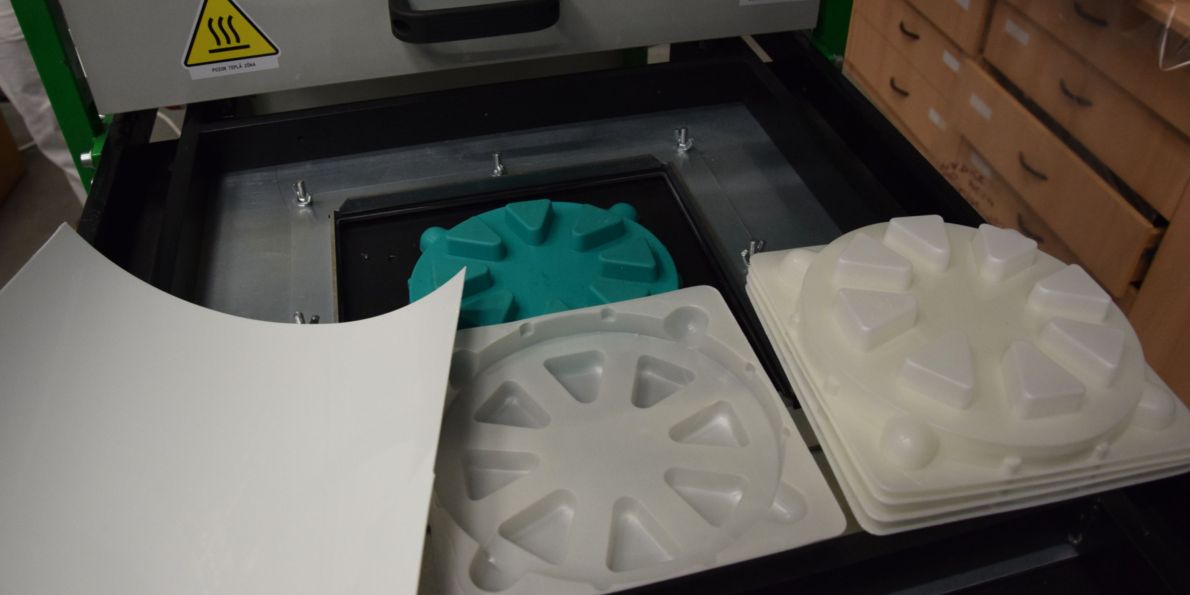Scientists from the Centre of Polymer Systems of Tomas Bata University in Zlín are now working intensively on the development of plastic food containers, which will decompose within a very short period of time and will not burden the environment. The invention has even one more significant added value – the plastic containers are resistant to high temperatures, which is not common with these types of polylactide products.
The products retain their shape even when filled with boiling water or heated in a microwave oven. They will therefore serve, for example, as hot meal containers.
“We cooperate in the development of these containers with Blatinie, a.s. company, which focuses on plant and animal production and invests in the development of environmentally friendly packaging. We have received a grant amounting to almost two and a half million CZK from the Technology Agency of the Czech Republic intended for the development of the product,” describes Vladimír Sedlařík, Rector of Tomas Bata University in Zlín and at the same time Director of the Centre of Polymer Systems and principal investigator of the project.
Scientists use polylactic acid (also called polylactide) to make the containers. It is mainly produced from agricultural by-products containing sugars. These include, for example, corn or sugar cane.
“Lactic acid is a relatively well-accessible raw material; it is inexpensive and obtained from agricultural waste products. The polymer produced thereof complies with all standards and regulations on health and usage in food-processing industry. Moreover, it is biocompatible, environmentally friendly and helps reduce the consumption of non-renewable fossil resources, namely crude oil,” explains Petra Válková from the Centre of Polymer Systems, who is participating in the project implementation.
A bio food container produced as described above will decompose within several months in technical compost – the period of decomposition is much shorter as compared with crude oil-based polymers. The final product of their decomposition is carbon dioxide and water. They won’t burden the environment that much.
Currently, scientists are completing testing of the material properties of the food containers. The development of the product will be completed by the end of this year; the product is expected to be introduced to the market within two years.
